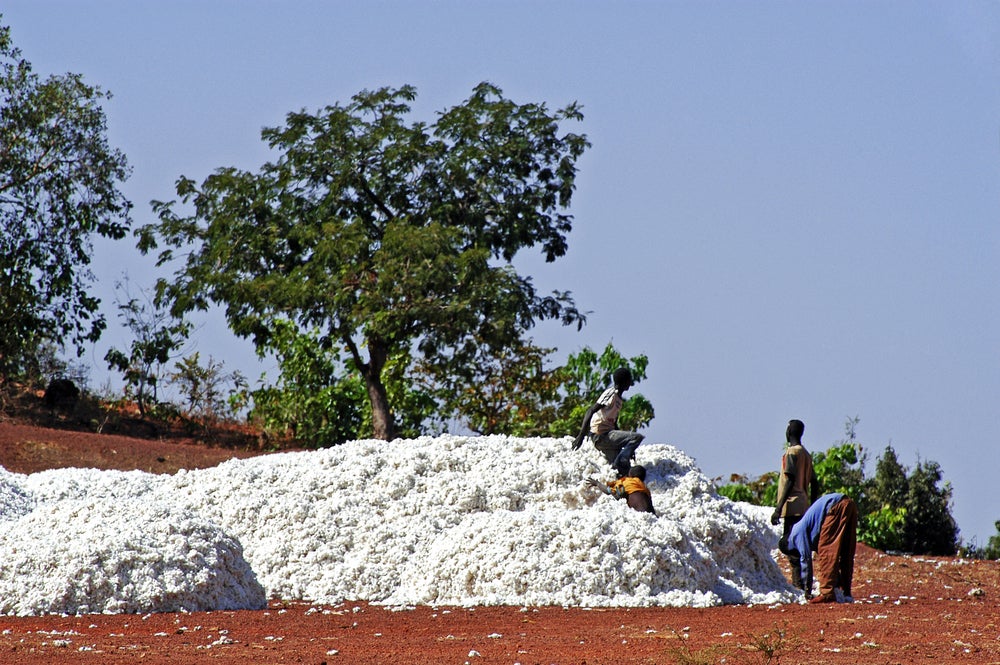
The Regenerative Cotton Standard (RCS) claims to be the first regenerative standard to take a comprehensive approach to helping the interests of small-scale farmers with resilience and long-term sustainability.
The standard combines proven methods to improve human rights and environmental aspects in cotton production by supporting measures for adapting to climate change, actively including small-scale farming communities, and promoting animal welfare.
In addition to providing small-scale farming communities with improved market access, RCS supports agricultural community projects, fostering mutual learning opportunities.
Farmers adopting the RCS standard benefit from guidance on proven cultivation practices, such as expanded crop rotation, optimised biomass usage, mixed crops, and agroforestry systems.
These practices aim to enhance the climate resilience and fertility of their fields, restore depleted soil, and make it arable once more. In a bid to guard against crop failures, the standard encourages diversification in terms of crop rotation and crop types.
The Aid by Trade Foundation’s standard also provides companies with a solution to safeguard the production of cotton, which is a crucial raw material for their textiles.

US Tariffs are shifting - will you react or anticipate?
Don’t let policy changes catch you off guard. Stay proactive with real-time data and expert analysis.
By GlobalDataThe standard offers stakeholders involved in the textile supply chain the advantage of meeting increasingly stringent sustainability reporting requirements.
Retailers and brands can gain transparency created by Cotton made in Africa’s Hard Identity Preserved system. The associated Online Tracking System ensures transparency throughout the entire value chain.
For the managing entities responsible for local implementation, RCS works towards opening doors to a sought-after product.
Given its requirement for close cooperation and continuous integration among farmers and their communities, the standard fosters loyalty to the managing entity, ensuring the planned and secure availability of cotton products.
It also provides financial support for expanding consulting services aimed at small-scale farmers.
AbTF boasts that the standard seamlessly merges the experience accumulated from its established cotton standards with fresh approaches to regenerative agriculture and community involvement in rural areas.
The trade organisation’s new standard is built on the success of its existing cotton standards, Cotton made in Africa (CmiA) and Cotton Made in Africa Organic.
“We are glad the Regenerative Cotton Standard will enrich our foundation’s family of standards, starting immediately,” said Tina Stridde, the managing director of the Aid by Trade Foundation, before continuing: “We are certain that RCS will meet the high standard of our clients because it combines high-quality cotton with strong social and ecological credentials. This is supported by the fact that we are already seeing great interest in RCS from both existing and new partners.”



